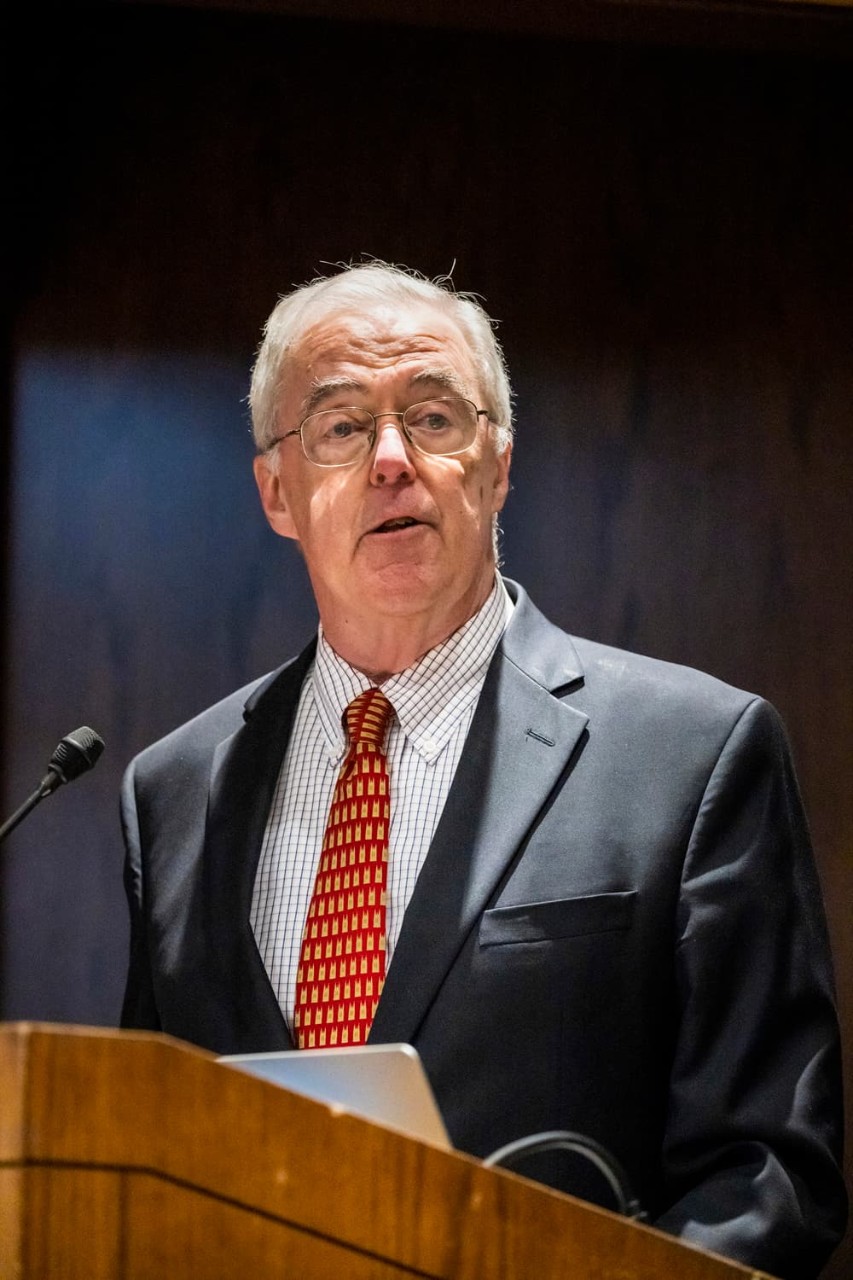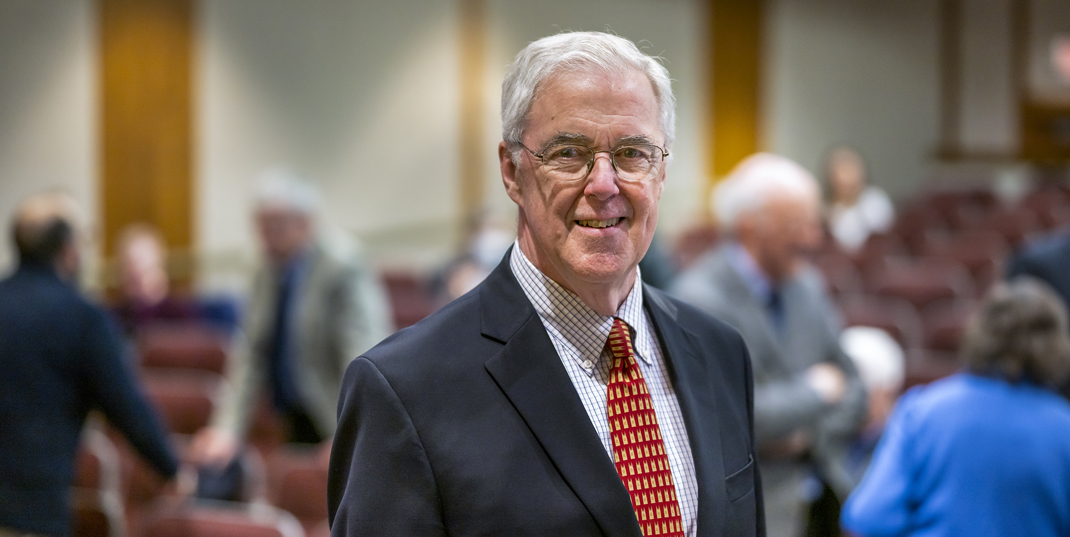Photos by Justin Knight
It wound up taking place two years later than expected, but University Historian James O’Toole has delivered his “last lecture” at Boston College.
O’Toole, the Clough Millennium Professor of History Emeritus, presented “History and Memory; Histories and Memories” on April 6 in Fulton 511, offering insights from his life as a historian and his forthcoming book, Ever to Excel: A History of Boston College.
Co-sponsored by the Alpha Sigma Nu Honor Society and the Center for Ignatian Spirituality, the Last Lecture series invites longtime faculty members to consider three questions: “If granted the possibility to give a last lecture, what would you say? What wisdom would you impart to the world? What would you want as your legacy?” BC’s series was inspired by Carnegie Mellon professor Randy Pausch, who gave a now-famous final lecture as he faced a terminal cancer diagnosis in 2007.

James O'Toole
O’Toole’s talk—which was rescheduled from April 2020 due to the pandemic— will certainly not be his last, but it offered an opportunity to reflect on his long relationship with Boston College. Following in two older brothers’ footsteps, he first enrolled in 1968 and earned both a B.A. and Ph.D. at BC; beginning in 1998, he taught in the History Department for more than 20 years.
Looking back on his undergraduate years, O’Toole invoked the “key questions” proposed by now-retired Professor of Theology Fr. Michael Himes, who gave BC’s inaugural Last Lecture in 2008.
“In addition to our formal education, we regularly solved the world’s problems in late-night sessions,” O’Toole said. “Although we didn’t think of it that way at the time, we were addressing a version of Fr. Himes’s famous questions: What gave us joy? Were we any good at it? Did the world need it?”
O’Toole found answers in the study of history, first as an archivist for the Commonwealth of Massachusetts and the Archdiocese of Boston, and later as a professor and author. Drawing on his knowledge of BC’s history, he detailed its transformation from “a small, somewhat insular school” to “a recognizable modern university.” In particular, he highlighted 1970 as a “turning point” when the University, facing financial difficulties, chose a path of growth.
“Remarkably enough, the institution decided not simply to hunker down and survive, but to expand and become something better, greater,” O’Toole said. He emphasized three key shifts: residential education, full coeducation, and increasing racial and ethnic diversity on campus.
Today, BC is both the same place O’Toole encountered in 1968 and an obviously different one. “The Jesuit founders would be no doubt surprised by the new ways their traditional values are being played out, but I have to think that they would be pleased nonetheless,” he said.
As for BC’s future, he preferred to leave that to tomorrow’s historians, but he was confident of one thing: “If we know our history, if we use our history both to confirm and to correct our memories, we’ll be able to contribute to the ongoing life of this institution about which we all care so much.”
John Shakespear | University Communications | April 2022




